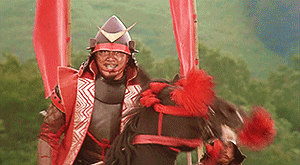 It is often said that film directors quality of work, declines with age. Many a film academic can note the decline of a master by their faltering output. Some deride them other pity them. Most simply see it as the sad fact of age. The modern maestro of the 90s new wave, Quentin Tarantino often frets over this situation. Fearing he might be on the end of his quality product cycle. This logic does have a few who bucked the trend. Ozu for instances seemed to avoid the fate worse than death. Akira Kurosawa is another. His films stood tall from his first until the last film NOT YET. The most respected where his samurai films and the films that crossed over (so to speak) like YOJIMBO and RASHOMON.
It is often said that film directors quality of work, declines with age. Many a film academic can note the decline of a master by their faltering output. Some deride them other pity them. Most simply see it as the sad fact of age. The modern maestro of the 90s new wave, Quentin Tarantino often frets over this situation. Fearing he might be on the end of his quality product cycle. This logic does have a few who bucked the trend. Ozu for instances seemed to avoid the fate worse than death. Akira Kurosawa is another. His films stood tall from his first until the last film NOT YET. The most respected where his samurai films and the films that crossed over (so to speak) like YOJIMBO and RASHOMON.
 RAN mirrors most of the plot of KING LEAR. That is what you will probably know about the film, if you have not seen it. Truthfully there is much more to the whole. Great Lord Hidetora Ichimonji (Tatsuya Nakadai) decides to abdicate. He is old. Very old. He has a peaceful kingdom and three sons to hold his honour past his death. The plan is to divide his domain amongst those three. Taro (Akira Terao), the eldest, will rule over all, as is the course. Jiro (Jinpachi Nezu), his second son, will be next in the line and given a fair share. Finally Saburo (Daisuke Ryu) will take command of the Second and Third Castles in the realm but both are expected to obey and support their elder brother. Saburo disagrees and defies the pledge of obedience. His father cant take the shame and has him banished. This triggers tragedy and terror.
RAN mirrors most of the plot of KING LEAR. That is what you will probably know about the film, if you have not seen it. Truthfully there is much more to the whole. Great Lord Hidetora Ichimonji (Tatsuya Nakadai) decides to abdicate. He is old. Very old. He has a peaceful kingdom and three sons to hold his honour past his death. The plan is to divide his domain amongst those three. Taro (Akira Terao), the eldest, will rule over all, as is the course. Jiro (Jinpachi Nezu), his second son, will be next in the line and given a fair share. Finally Saburo (Daisuke Ryu) will take command of the Second and Third Castles in the realm but both are expected to obey and support their elder brother. Saburo disagrees and defies the pledge of obedience. His father cant take the shame and has him banished. This triggers tragedy and terror.


RAN reveals the creative intelligence of Kurosawa. Less in the sense of his motives and character studies. these all play into his ideal of the failed hero as a true conquering force. It is more in his translation of a Shakespearian venture. He always did the majestic transcribing of the bard. From THRONE OF BLOOD and its spiders webs to THE BAD SLEEP WELL and the chiaroscuro lights. Many of the ideas here are actually translated to the screen via bold compositions and framing. The smallness of the individual. Isolation and dominance. Some of these also feel like a painter has touched them with strokes of warmth. They benefit from the UHD, which is a rare instance that this happens in my humble opinion. The storyboard flowed over with this but add to it the script, tense and taut with the corrupting power (and sex) then you balance both ends. Which is central to the reason for opting for this Blu Ray upgrade. If you have UHD player, then buy the UHD disc. This is not run at the blu ray copy but the difference is palpable. It is also a few pounds saved in the longer run!
 The extras are up for discussion currently. The best is in Chris Marker (yes that CM) documentary. Wow. Literally. Wow. Marker illuminates Kurosawa in many senses. Like almost if he was filming himself. The other good extra is Interview With Michael Brooke. He is a very great film historian. He also doesn’t like me very much. Once calling me ‘A moron’. However I will happily take that from a person who knows the path of creation RAN took and the bodies involved in making it great.
The extras are up for discussion currently. The best is in Chris Marker (yes that CM) documentary. Wow. Literally. Wow. Marker illuminates Kurosawa in many senses. Like almost if he was filming himself. The other good extra is Interview With Michael Brooke. He is a very great film historian. He also doesn’t like me very much. Once calling me ‘A moron’. However I will happily take that from a person who knows the path of creation RAN took and the bodies involved in making it great.
Extras:
A.K. – Feature Length Chris Marker Documentary On Akira Kurosawa
Interview With The Director Of Photography – Shôji Ueda
Interview With Ms Mieko Harada
Interview With Michael Brooke – Author/Journalist
Stage Appearance At Tokyo International Film Festival 2015
Ran: The Restoration




